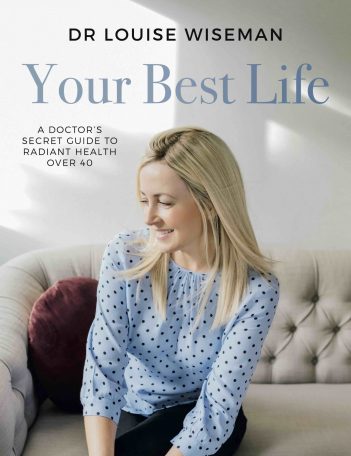Muscles are moving your eyes to read these words. Muscles are allowing you to sit, breathe, blink and get up to make that coffee in a minute. Do you even think about them? There are around 700 skeletal (moving bone) muscles in the human body. There are endless lengths of smooth muscle in blood vessels to shrink and expand the size of these tubes of blood and move it around the body. There is one heart (cardiac) muscle vital to all of this. How can muscle be manipulated to help you stay well? We are not only talking about a biceps curl at the gym.
Let’s think of muscle as the powerhouse for our movement, posture, pelvic floor and beating hearts. Muscles require nurture, TLC and a definite tune up.
MOVEMENT IN SKELETAL MUSCLE
We lose 3 to 8 per cent of muscle every decade as we age. Shockingly sad but let’s fight that now. You can change it!
Keep your figure
We burn fat within our muscle and healthy muscle helps preserve our metabolic rate. Let it dwindle and the muscle wastes, the fat supplies expand. Muscle takes up less space than fat. Muscle never turns into fat or vice versa so don’t think of that when you are ‘dieting’ or increasing your exercise. Excess fat gives us extra curves that me may not want but severe weight loss diets can actually mean we lose muscle and our metabolic rate slows. We literally regain fat afterwards as we lose muscle. One does not turn into another.
Weight training does the reverse. When you weight train you GAIN
Strength in bone and muscle
Metabolic rate
Ease of digestion
Stamina
Confidence
As women we have maybe a tenth of the testosterone of men, so not enough to truly bulk up. Working with exercises against our body weight (e.g. floor work) and light to medium free weights is more effective than slogging away with very light weights if you are capable of doing a little more
Through working your muscles, you may lower your cholesterol, blood pressure, diabetes risk, weight and chance of arthritis as bones are supported more around joints. If muscles are functioning effectively then any sugar and carbs we digest are metabolised more efficiently also our insulin works better in our bodies). Very low muscle mass is a risk factor for ‘insulin resistance’ as we age- this basically means we can’t handle our sugar well and it is more likely to end up as fat reserves. It is now more common to see women using free weights in the gym. You should be trained correctly as injuries and joint damage will undo all of this good. We want to maintain function as we age. It is no good living long but not being able to walk to the shops or pick ourselves up if we fall! FUNCTION is the buzzword for our future but it is bang on trend for you right now.
When you have weight trained or used large muscle groups you continue to burn more calories later in the day. Squats, jumps and lunges burn a lot as they are using the large muscle groups in combination. Use the stairs- if you stop, you literally lose the ability to do so.
If we don’t move, we waste away. Slowly, but we literally do. We need to be active every day with the right balance between sitting/standing and moving. Hunching over your desk or phone all day or driving for hours? You really need to make up for that with movement. As a sedentary writer finishing my book last year I tell you the struggle is real!
A great concept is run- walking. If you can’t run, then just walk, but if you have never run try walking then slow running interspersed- maybe start with 5 seconds running for every minute and build up over a few sessions to 15 seconds per minute. You may feel slightly self conscious on your own (like running for an invisible bus!) so try with a friend! This is how our bodies were built to work- intermittent bursts of activity not always an endless slog.
If you are practising any form of exercise that includes weights/body resistance work you can increase lean muscle tissue and basically ‘de-age’ your body. That muscle will pump well and give you energy. Your skin, confidence, libido may soar as the blood flow improves EVERYWHERE! Go for it!
Posture
Daily damage caused by computer desks and ‘tech neck’ need to be undone. Don’t ‘shoulder hold’ your phone for hours. Your body will not forgive you.
Talking to my friends in their 40s and 50s, we all have aches and pains we did not have when younger whether we are gym bunnies or not. If we sit too much our hip flexors stay tight at our desk and our glutes weak. You don’t necessarily want a ‘bubble butt’ but you do want strong glutes! Carry a heavy handbag? Ditch the excess nonsense in it (guilty as charged) or your shoulders may round and your spine twist. We are remarkably adept at becoming asymmetrical in our bodies from bad habits!
Consider Yoga or Pilates- ideally one to one initially- to assess and reconfigure your posture.
Stand tall- that old trick of imagining you have string pulling up from your head works.
Look at asymmetry- do your shoulders and hips lie level? We need to stretch and exercise to protect our necks, take breaks from tech and screens. Keep your core strong and stand regularly. Standing desks are not a gimmick. Pilates is not new, yet we are realising its potency in maintaining strength, our figure and our youthful posture.
We need 75 to 150 minutes’ activity (at least walking) every week. Your sofa will not keep you well. The ground will.
PELVIC FLOOR
Women have many organs in the pelvis combined in a small space and they are held by a bowl shaped ‘sling’ called the pelvic floor. If you haven’t become acquainted with yours then say hello now.
Straining to lift heavy objects or gaining excessive weight stresses your pelvic floor (also pregnancy/delivery/any pelvic surgery potentially). You may not realise until it is too late.
Try the movement you would do to hold in wind/stop the flow of urine and you are engaging your pelvic floor. Try holding it for four seconds. Is that tough? (try not to simultaneously hold your breath/tense/facially gurn as you do (my downfall).
Avoiding excessive weight gain and seeing a women’s health physio or speaking to them can help with your pelvic floor, incontinence and milder forms of prolapse. Speak to your doctor or nurse about your options.
HEART MUSCLE
Sometimes science can surprise you and sometimes it just formalises something you already believed in.
Can you die of a broken heart?
Can your heart ache for someone lost?
A lot of my research and writing is about managing lifestyle and reducing the effects of stress so they don’t affect our neurological and cardiac systems as much as they might. Cutting to the core when awful things happen we cannot escape. Bereavement, heartbreak, upset can cause something deeper alongside crying and feelings of desperation. Can they literally break your heart?
We know from studies 30 years ago that stress management and lifestyle change can reduce ‘plaques’ that have build up in the cardiovascular system linked to cardiac disease. We never really focussed on emotion here. Strong emotions DO have a physical effect on the human heart. We think of the heart as the source of love yet we know it is our brain. The heart can still potentially suffer. It has an intimate connection with our emotions. Fear and grief in their diabolical aftermath cause our blood vessels to constrict, our hearts to gallop and our blood pressure to rise. The heart appears stunned in this state and can almost ‘balloon’. A phenomenon now recognised and called Takotsubo Cardiomyopathy. The Takotsubo is a Japanese pot with a wide base and narrow neck- the shape a heart can impersonate in this state- this can then go on to cause heart failure, irregular heart beats, blood pressure falling (going into shock) and potential organ damage in this vulnerable time. Any excessive shock/natural disaster has the potential to cause Takotsubo. After an earthquake the severity has been found to be directly proportional to how near the epicentre the patients were. How completely shocking! I asked Dr Sandeep Jauhar, a renowned leading NYC Cardiologist in this field and he explained to me listening to his TED talk is one of the best ways to understand this phenomenon. I urge you to listen.
Your future heart
We cannot insulate ourselves against emotion, we must feel it. We cannot predict or avoid disaster and grief so we must be aware to protect our hearts in times of calm so that if the worse happens we have stress coping mechanisms to cushion us. Keep your added salt low to your food, exercise, eat healthy, lose excessive weight and you are protecting your blood vessels and heart from strain.
That yoga class, that meditation session, that massage, that ‘run-walk’ not only keep your calm fuel tank topped up but they also keep your heart happy for many years to come.
Love is surely meant to be an ADVENTURE!
I say ‘Keep all your muscles strong for the ride!’
(some of this original text of mine first appeared in www.thefrankmagazine.com)

